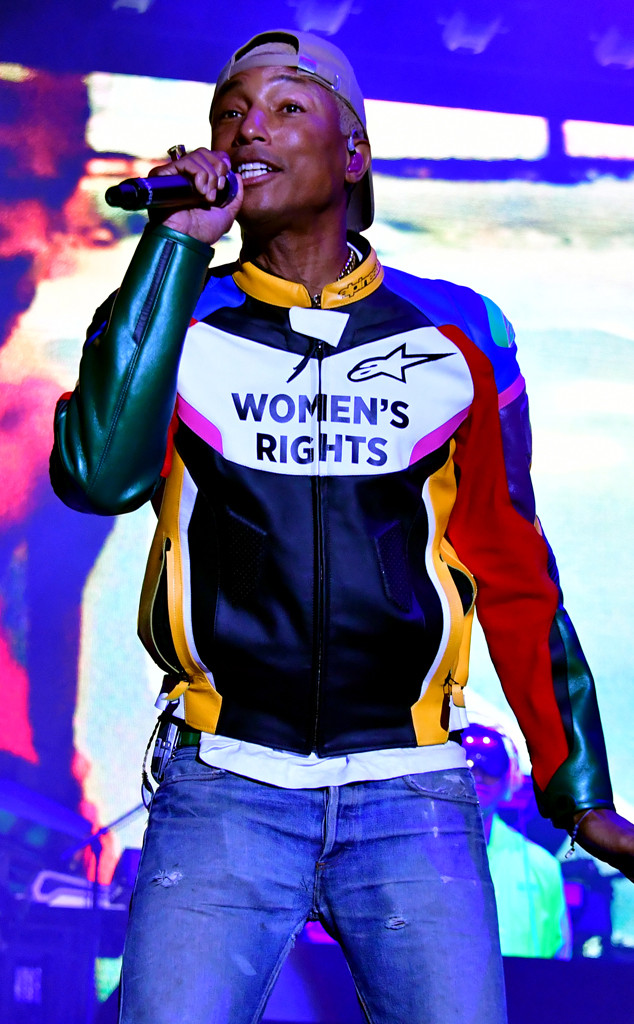
Neilson Barnard/Getty Images for adidas
One of Pharrell Williams‘ most famous songs was also one of his most eye-opening.
The star produced, co-wrote and performed on the now-infamous 2013 track, “Blurred Lines.” Albeit a successful number one single and one of the top hits of 2013, the song also garnered criticism and sparked controversy over its lyrics.
“More disturbingly, certain lyrics are explicitly sexually violent and appear to reinforce victim-blaming rape myths, for example about women giving ‘mixed signals’ through their dress or behaviour, saying ‘no’ when they really mean ‘yes’ and so on,” a spokeswoman for Rape Crisis told The Independent at the time.
In a newly published interview with GQ, Pharrell reflected on the song and how it impacted his view of American culture.
“I was also born in a different era, where the rules of the matrix at that time allowed a lot of things that would never fly today,” he explained to the magazine. When asked for examples, Pharrell responded with, “Advertisements that objectify women. Song content. Some of my old songs, I would never write or sing today. I get embarrassed by some of that stuff. It just took a lot of time and growth to get to that place.”
When asked if his “awakening” was related to the Me Too Movement, the star noted it was that track that spurred a shift for him. “I think ‘Blurred Lines’ opened me up,” he acknowledged. “I didn’t get it at first. Because there were older white women who, when that song came on, they would behave in some of the most surprising ways ever. And I would be like, wow. They would have me blushing. So when there started to be an issue with it, lyrically, I was, like, What are you talking about? There are women who really like the song and connect to the energy that just gets you up. And I know you want it—women sing those kinds of lyrics all the time. So it’s like, What’s rapey about that?”
“And then,” he continued, “I realized that there are men who use that same language when taking advantage of a woman, and it doesn’t matter that that’s not my behavior. Or the way I think about things. It just matters how it affects women. And I was like, Got it. I get it. Cool. My mind opened up to what was actually being said in the song and how it could make someone feel. Even though it wasn’t the majority, it didn’t matter. I cared what they were feeling too. I realized that we live in a chauvinist culture in our country. Hadn’t realized that. Didn’t realize that some of my songs catered to that. So that blew my mind.”
Just months later, the star released what would become the best-selling song of 2014: the Oscar-nominated “Happy.”

Micaiah Carter
“And then here comes ‘Happy,’ a record that I didn’t write for myself, that I ended up being on, that made people feel happy,” he recalled to GQ. “I wrote that song for CeeLo [Green]. I don’t have the capacity to write that kind of song for myself. When I do songs for myself, they’re always too complicated, and too smart, with six bridges. Because I’m weird like that. But when I do stuff for other people, that allows me to channel things for them, and so the universe set up the perfect conditions to get me to write a song like that.”
He continued, “That made me cry. It literally made me cry. Like, I was on the Oprah show for my birthday, and she showed me a video of people around the world singing that song, and that shit f@!ked me up. Bad. I was never the same. So I don’t beat on my chest. I haven’t been the same since any of that music.”
The November issue of GQ hits newsstands October 15.

